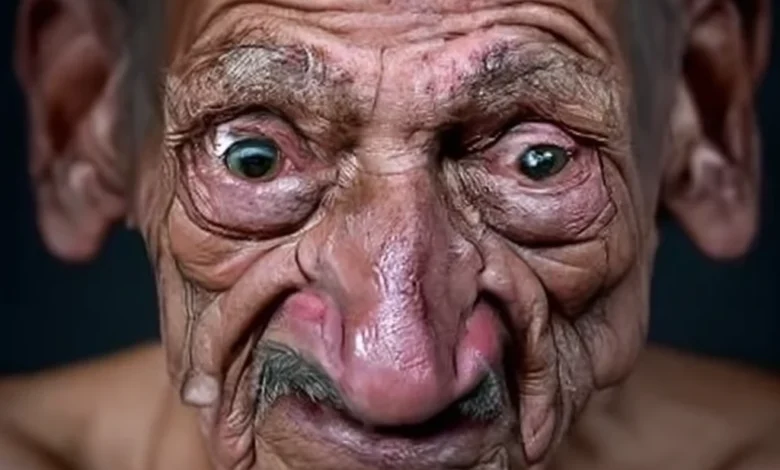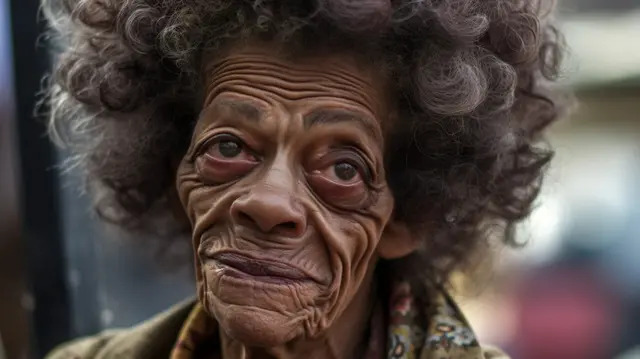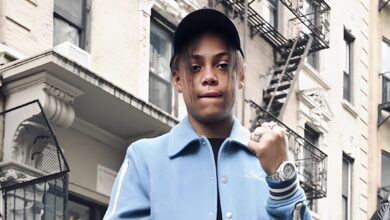Discovering the Ugliest Person Ever: Beauty Beyond Appearance

Table of Contents
Explore the concept of beauty and the title of the “ugliest person ever.” Dive into societal perceptions, personal stories, and the importance of kindness over appearance.
Introduction: The Ugliest Person Ever
The term “ugliest person ever” often sparks curiosity and controversy. It’s intriguing how society defines beauty and, conversely, what is considered ugly. Many people have opinions, but what does it truly mean to be the “ugliest person ever”? This blog will explore this concept deeply, looking at beauty standards, personal experiences, and the importance of kindness and acceptance.
In today’s world, where looks seem to matter more than ever, the discussion surrounding the ugliest person ever is particularly relevant. People frequently judge others based on their appearance, often overlooking the more important qualities that truly define a person. Therefore, let’s dive into this topic and uncover the layers of meaning behind it.
Understanding Beauty and Ugliness
The Cultural Impact of Beauty Standards
Beauty standards vary across cultures and time periods. What one society may deem beautiful, another might consider less appealing. For instance, in some cultures, fuller body shapes are celebrated, while others prefer slimmer figures. This discrepancy leads to confusion about what is truly beautiful.
Moreover, these standards have a significant impact on individuals. People often feel pressured to conform to these ideals, which can lead to low self-esteem and mental health issues. As a result, discussions about the ugliest person ever must also consider these cultural influences on beauty.
Personal Stories of Beauty and Ugliness
Many individuals have shared their experiences of being labeled ugly. For example, some might recount their childhood memories of being bullied for their appearance. These stories highlight the emotional scars that such labels can leave behind.
Additionally, people often discover that true beauty lies within. Those who have faced adversity frequently emerge stronger and more compassionate. Their journeys remind us that the ugliest person ever is not defined by their looks but by their character and actions.
The Psychology Behind Beauty
How Society Shapes Our Perceptions
Society plays a crucial role in shaping how we perceive beauty and ugliness. Media often portrays specific beauty standards through advertisements, movies, and social media. Consequently, individuals may feel compelled to alter their appearance to fit these molds.
Furthermore, the impact of these portrayals can be profound. Many people suffer from body image issues due to unrealistic standards. This situation raises the question: can someone labeled as the ugliest person ever find self-acceptance?
The Role of Self-Acceptance
Self-acceptance is essential for mental and emotional well-being. Learning to embrace one’s unique qualities can lead to a more fulfilling life. People who accept themselves often radiate confidence and positivity, which can change how others perceive them.
Moreover, those who find beauty in themselves often inspire others to do the same. By promoting self-love, we can shift the focus from external appearances to internal qualities, making the idea of the ugliest person ever less relevant.
The Consequences of Labeling
The Impact of Labels on Individuals
Labeling someone as the ugliest person ever can have devastating effects. It can lead to bullying, social isolation, and mental health issues. When individuals are branded with such harsh terms, they may struggle to find their place in society.
In many cases, these labels can overshadow a person’s talents and abilities. Rather than being recognized for their achievements, they are defined by superficial standards. This cycle of negativity highlights the need for compassion and understanding.
Breaking the Cycle of Negativity
To combat the harmful effects of labeling, we must promote kindness and respect. Encouraging positive interactions can help break the cycle of negativity and support those who feel marginalized.
Additionally, fostering environments where differences are celebrated can lead to healthier communities. By changing our approach to beauty and ugliness, we can create a more inclusive society.
Redefining the Ugliest Person Ever
Beauty Beyond Appearance
Redefining the ugliest person ever requires a shift in focus. Instead of solely judging by looks, we must consider kindness, intelligence, and creativity. These qualities often outweigh physical appearance, leading to a more meaningful understanding of beauty.
Moreover, those who contribute positively to the world should be celebrated, regardless of their looks. This redefinition encourages us to appreciate the unique attributes that everyone brings to the table.
The Power of Kindness
Kindness is a powerful tool in redefining beauty. When we show compassion to others, we create a ripple effect that can change lives. Acts of kindness can help individuals feel valued, regardless of how they look.
Additionally, promoting kindness in our daily interactions can help diminish the stigma associated with being labeled the ugliest person ever. By focusing on kindness, we can elevate the conversation around beauty and foster a more accepting environment.

Conclusion: Embracing Our Differences
The concept of the ugliest person ever serves as a reminder that beauty is subjective. While society may impose certain ideals, true beauty lies in our unique qualities and how we treat others.
By embracing our differences and promoting kindness, we can redefine beauty standards for future generations. Ultimately, it’s not about who is the ugliest or the most beautiful; it’s about the impact we have on each other’s lives.
FAQ: The Ugliest Person Ever
1. Who is considered the ugliest person ever?
While beauty is subjective, various individuals have been labeled as the “ugliest” based on societal standards. However, this title often reflects societal biases rather than true ugliness.
2. Why do we judge people based on their appearance?
Judgment based on appearance is often rooted in societal norms and media portrayals of beauty. Unfortunately, these standards can lead to unfair treatment of individuals who don’t conform.
3. Is there an official title for the ugliest person?
There is no official title for the ugliest person, as beauty standards vary widely across cultures and time periods. Such labels can be harmful and perpetuate negative stereotypes.
4. How do societal perceptions of beauty affect individuals?
Societal perceptions can significantly impact self-esteem and mental health. Individuals labeled as unattractive may face bullying or discrimination, which can lead to emotional distress.
5. Can someone be considered ugly and still be beautiful?
Absolutely! Beauty is not solely based on physical appearance but encompasses qualities like kindness, intelligence, and personality. Many people find inner beauty far more appealing than outward looks.
6. What can we do to promote kindness over appearance?
We can promote kindness by challenging beauty norms, celebrating diversity, and practicing empathy. Encouraging positive conversations about appearance can help shift societal views.
7. Are there any famous stories about people labeled as ugly?
Yes, many individuals have shared their experiences of being labeled as ugly. Some have turned their stories into powerful messages of self-acceptance and resilience.
8. How can we change our perceptions of beauty?
Changing perceptions involves education, awareness, and open discussions about beauty standards. Highlighting diverse representations in media can also help reshape societal views.
READ MORE : 7 Inspiring Facts About Lora Chaffins: A Beacon of Hope and Resilience




